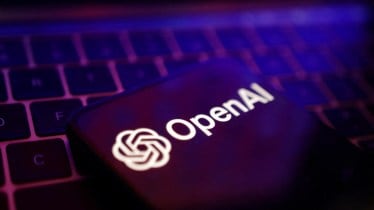Nathan Calvin, a lawyer advocating for stronger rules around artificial intelligence (AI), says he was shocked when a sheriff’s deputy showed up at his home. The unexpected visit happened while he was having dinner with his wife. The officer handed him a subpoena that is a legal notice demanding documents from OpenAI, one of the world’s leading AI companies.
Nathan Calvin believes this move was not just about legal paperwork. He claims it was meant to intimidate him and others who are working to hold tech companies accountable for how they develop and use AI.
One Tuesday night, as my wife and I sat down for dinner, a sheriff’s deputy knocked on the door to serve me a subpoena from OpenAI.
— Nathan Calvin (@_NathanCalvin) October 10, 2025
I held back on talking about it because I didn’t want to distract from SB 53, but Newsom just signed the bill so… here’s what happened:
🧵 pic.twitter.com/VnYCJYg2DH
What is the Conflict?
Nathan Calvin works with Encode Justice that is a nonprofit group focused on AI regulation and public awareness. He said OpenAI demanded internal communications, including messages between Encode and former OpenAI employees, students, and lawmakers.
The request came as part of OpenAI’s ongoing legal battle with Elon Musk, but Nathan Calvin says his organization has no ties to Musk or his companies. According to Nathan Calvin, the company’s actions appear to be an attempt to silence critics who are calling for more transparency in AI development.
Did other Activists Receive Similar Requests?
Nathan Calvin isn’t alone. Other AI activists have come forward, saying they also received subpoenas from OpenAI. Tyler Johnston, head of another nonprofit focused on AI safety, reported a similar incident. He said OpenAI requested documents covering a broad range of topics, including conversations with journalists and researchers.
These events have sparked concern in the AI community, raising questions about whether large tech companies are trying to suppress opposing views through legal pressure.
How did OpenAI Respond?
In response, OpenAI said the subpoenas are part of the legal process and were necessary to gather information. The company insists law enforcement is often used to deliver such documents in formal investigations.
However, not everyone at OpenAI supports this approach. One senior staff member reportedly expressed concern that these actions could harm the company’s public image and mission, describing the situation as potentially threatening to open debate and trust.
Is this a Bigger Issue in the AI World?
This situation highlights growing tension between AI developers and those calling for stronger oversight. As artificial intelligence becomes more powerful, many experts believe open discussions and ethical checks are more important than ever. Critics warn that using legal tools to target watchdogs could create a chilling effect where fewer people feel safe speaking up.
Nathan Calvin says he won’t back down. He remains committed to advocating for safe, transparent AI no matter the pressure.
